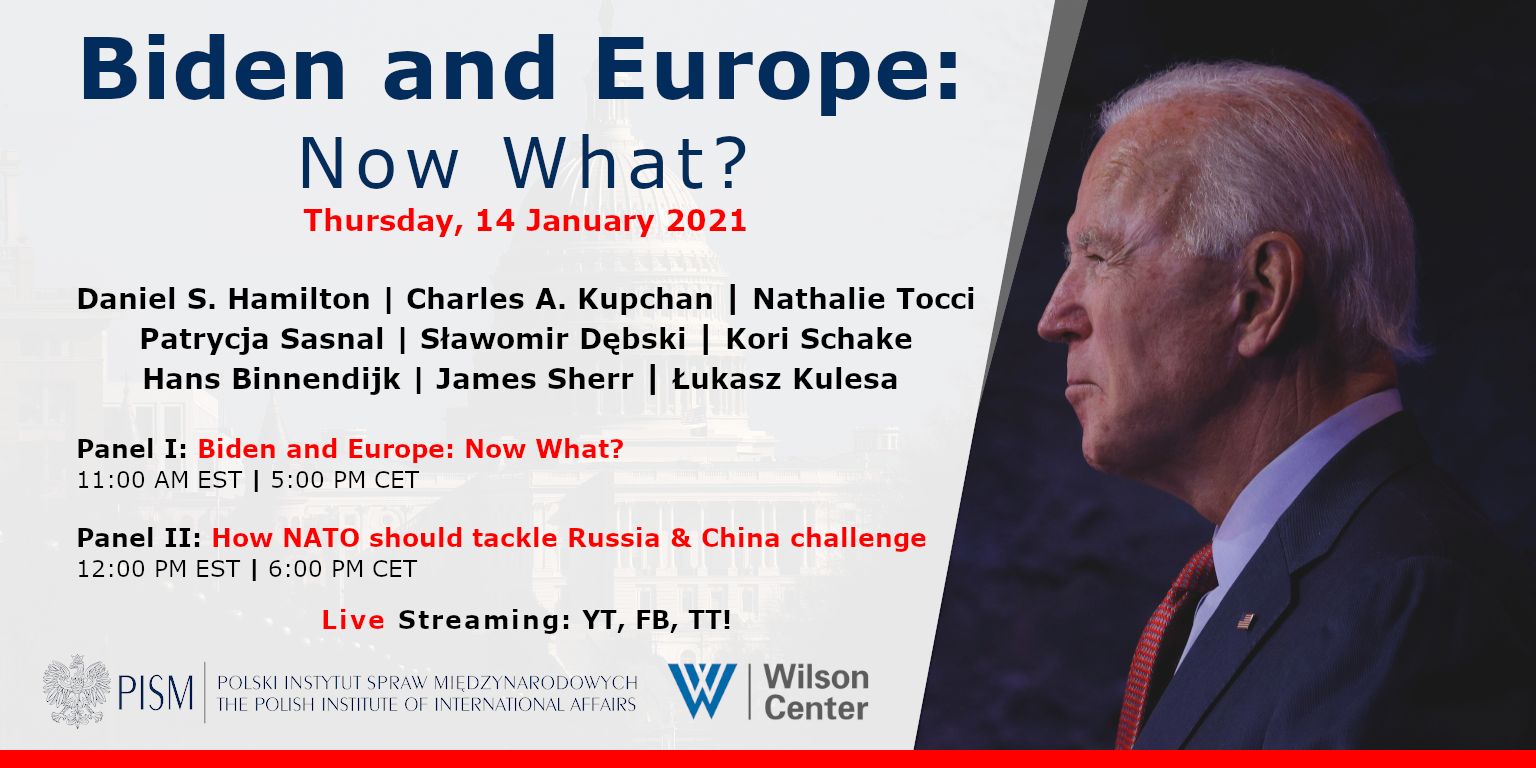Biden and Europe: Now What?
Zakończenie spotkania: 14.01.2021, 19:00
 .
.
are pleased to invite you to the online Conference
Biden and Europe: Now What?
_________________
14 January (Thursday) 2021
11:00-01:00 EST
17:00-19:00 CET
_________________
Agenda
17:00-18:00 Biden and Europe: Now What?
-
- Daniel S. Hamilton, Director, Global Europe Program; Wilson Center
- Charles A. Kupchan, Senior Fellow, Council on Foreign Relations
- Patrycja Sasnal, Head of Research, Polish Institute of International Affairs
- Nathalie Tocci, Director of the Istituto Affari Internazionali
Chair: Sławomir Dębski, Director, Polish Institute of International Affairs (PISM)
18:00-19:00 How NATO should tackle Russia & China challenge
-
- Hans Binnendijk, Distinguished Fellow, Atlantic Council
- Łukasz Kulesa, Deputy Head of Research, Polish Institute of International Affairs
- Kori Schake, Director of Foreign and Defense Policy Studies, American Enterprise Institute
- James Sherr, Senior Fellow, Estonian Foreign Policy Institute at the International Centre for Defence & Security, Tallinn
Chair: Daniel S. Hamilton, Director, Global Europe Program; Wilson Center
In the week time Joe Biden will be sworn as the 46th President of the United States of America. He promises that after four years of Donald Trump administration when the influence and credibility of the United States in the world diminished, America would rededicate itself to the world affairs, “mobilising collective action to meet new threats, especially those unique to this century”.
Could the United States regain its leadership role in the world and become again an “indispensable nation” as then U.S. Secretary of State Madeleine Albright called it more than 20 years ago? How America’s rededication to the allies and partners, particularly in Europe and NATO, may be shaping the world during Biden’s term? What Europe does expect from this administration? What America and Europe could do, and should not do, to harmonise their respecting stances towards China, Russia, Iran, Middle East etc?
Next week, Joe Biden will be sworn in as the 46th President of the United States of America. He promises that after four years of the Trump administration, during which the influence and credibility of the United States in the world diminished, America will re-dedicate itself to “mobilizing collective action to meet new threats, especially those unique to this century.”
Will the United States return to its leadership role in the world and become an “indispensable nation” again, as coined by then-U.S. Secretary of State Madeleine Albright more than 20 years ago? How will America’s renewed commitment to allies and partners, particularly in Europe and NATO, shape the world during Biden’s term? What does Europe expect from this administration? What could America and Europe do to better harmonize their respective stances towards China, Russia, Iran, and the Middle East, and when facing other global challenges?
This event is organized by of the Polish Institute of International Affairs (PISM) based in Warsaw, and the Woodrow Wilson International Center for Scholars based in Washington, DC.
In case you have missed the conference, the recording is available online, via following link: https://www.youtube.com/watch?v=zaSVzBKR1as&ab_channel=PolandPISM
